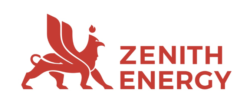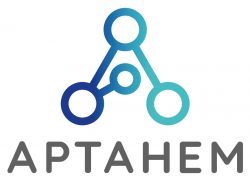2024-12-04

CEO Toni Laaksonen
"Glaston benefits from a long-term global customer base and a robust service network, underpinned by innovative, high-quality technologies that enhance operational efficiency and drive recurring business through modernizations and partnerships."
For those who haven’t heard of Glaston before, could you tell us a bit more about your company, what you do, and which markets you address?
Glaston is a global technology company that provides machinery and service solutions for the glass processing industry. Contrary to the misconception that we produce glass, our expertise lies in delivering cutting-edge equipment and services for the next stages in the glass value chain after float glass production. We operate in several key markets, including architectural, mobility, display, and solar glass processing, with architectural and mobility being the largest customer segments.
In the architectural market, we enable the production of insulating glass (IG), laminated glass, and tempered glass for applications like buildings. In the mobility sector, our machinery is used to process glass for windshields, sunroofs, and similar products, with a significant portion of global automotive glass produced using Glaston’s equipment. Additionally, we support the solar market with heat treatment solutions and the display market with advanced glass pre-processing capabilities.
Glaston is a global leader in our addressable markets, leveraging significant R&D investments to maintain our technology leadership. We serve customers worldwide with technology centers in Finland, Germany, Switzerland, and China, and provide comprehensive support through a global service and sales network.
Could you tell us more about your product/service in architectural and flat glass processing equipment, its advantages, and how it compares to competitors offering other solutions?
Glaston offers advanced equipment for processing insulating, laminated, and tempered glass in the architectural segment and automotive glass such as windshields and sunroofs. Our solutions focus on automation, energy efficiency, and sustainability, helping customers reduce operational costs and meet environmental standards.
Compared to competitors, Glaston leads the industry in innovation rather than imitation. Some competitors often replicate existing solutions, while Glaston drives the development of new technologies. For example, our recent introduction of high-level innovations in insulating glass production enhances automation and lowers costs, positioning us ahead of the market.
Moreover, we differentiate ourselves through our comprehensive global service network, offering support with decades of experience for customers worldwide. This combination of state-of-the-art technology and reliable service makes us a preferred choice for customers seeking high-end, efficient, and sustainable solutions.
Service operations accounted for a significant share of your net sales in Q3 2024. How is Glaston planning to expand its service portfolio to increase recurring revenue?
Glaston’s service portfolio is a special growth area, encompassing spare parts, upgrades and modernizations, field services, annual inspections, and remote monitoring services. We aim to expand this portfolio by offering advanced solutions such as energy efficiency optimization, automation upgrades, and predictive maintenance. Proprietary technologies, like our furnace Autopilot, enable customers to enhance productivity and quality while reducing operational costs and the need for manual intervention.
Recurring revenue is further supported by our spare parts business, as glass processing equipment requires regular part replacements. Customers often rely on Glaston for these, due to their reliability and compatibility.
Additionally, we are strengthening our service leadership and resources to capture more value from our growing installed base while providing an industry-leading customer experience. This includes e.g. continuous software upgrades and modernizations, which allow customers to improve energy efficiency and production output while relying on our expertise for maintenance and support.
Could you elaborate on the recent transfer of pre-processing equipment production to Tianjin, China? How will this change impact your operational efficiency and customer service globally?
The transfer of pre-processing equipment production to Tianjin, China, represents a strategic move to optimize global operations. This shift brings production closer to the fast-growing Chinese automotive market, improving our responsiveness to customer needs while reducing costs. The cost benefits stem from lower manufacturing expenses in China compared to Switzerland, where production was previously located.
Despite this transition, we maintain a robust presence in Europe, with a technology center and a service hub in Switzerland to support customers. The consolidation of production in China also enhances our global capacity utilization, allowing us to achieve economies of scale and invest in improved customer service capabilities worldwide.
Your Q3 2024 report mentions the strong growth in orders for Mobility, Display & Solar technologies, particularly in China. Could you share more about the demand trends in this segment?
The mobility segment, particularly automotive glass production, has seen substantial demand in China. Customers like Fuyao have increased production capabilities and placed new orders, reflecting the strong alignment of our solutions with their needs. Similarly, the solar glass processing technologies market has seen growth as global energy efficiency and sustainability goals become more prominent.
We expect this demand to continue growing as the Chinese market increasingly prioritizes advanced glass processing technologies. This is further supported by our localized production capabilities, which enhance our competitiveness in the region.
The collaboration with Corning for ultra-thin glass processing represents a significant innovation. How does Glaston plan to commercialize this technology, and what growth potential do you see?
Our collaboration with Corning enables the production of ultra-thin triple IG glass, which is a revolutionary solution for insulation. This product is highly relevant for markets in the northern hemisphere, where energy efficiency in buildings is critical, and for regions focusing on cooling efficiency, like Australia.
Glaston is currently the only company capable of providing this advanced technology and processing method, giving us a first-mover advantage. Early adoption in North America, Europe, and Australia has been promising, and we expect the market to grow rapidly as environmental regulations push for energy-efficient solutions.
With the architectural glass equipment market remaining soft, what specific strategies is Glaston implementing to strengthen its position in this segment and mitigate the effects of delayed investments in EMEA and the Americas?
Glaston is tackling the softness in the architectural glass equipment market with a strategic focus on modernizations and upgrades. These solutions allow customers to optimize operational efficiency, reduce energy consumption, and lower costs without committing to significant capital investments, which is especially appealing in the current economic climate. Our advanced technologies, such as Thin insulating glass TPS® for ultra-thin IG glass processing, not only help customers meet stricter environmental regulations but also position Glaston as a leader in providing sustainable and energy-efficient solutions.
We are also leveraging our global service network to strengthen customer relationships and ensure recurring revenue. This includes spare parts supply, annual inspections, and remote monitoring, and enabling customers to maximize the performance and lifespan of their existing equipment. By offering tailored support and maintaining close collaboration with clients, we continue to deliver value even in a subdued market.
Furthermore, our ongoing R&D efforts are focused on developing technologies that address future market demands, ensuring we remain at the forefront of innovation. These strategies enable us to maintain a strong position in the architectural glass segment while preparing for increased demand as the market recovers.
Is there a recent significant event or upcoming milestone that you believe will play a key role in shaping Glaston’s future trajectory?
The consolidation of production in China, the expansion of our service business, and the commercialization of our latest technologies e.g. for ultra-thin IG glass processing are key milestones. Together, these initiatives enhance our competitiveness, operational efficiency, and ability to capture new market opportunities. Our investment in advanced technologies and sustainable solutions positions us strongly for long-term growth.
Where do you see Glaston in three years from now?
In three years, Glaston will continue to strengthen its global market leadership through advanced technologies, enhanced service offerings, and improved operational efficiency. We target profitability improvement, supported by increased adoption of sustainable solutions. Additionally, recovery in construction activity would lead to positive development in the architectural glass market in Europe. In Asia and the Americas, we see potential in growing our market shares.
Could you mention three reasons why Glaston is a good investment today?
- Profitability Growth: Target to enhance profitability through operational efficiencies, global sourcing, and service expansion.
- Market Leadership: Industry-leading technologies, unmatched global service coverage, and a strong position in high-growth markets.
- Sustainability Trends: Innovations that align with global energy efficiency and CO2 reduction goals, ensuring relevance in future markets.



